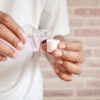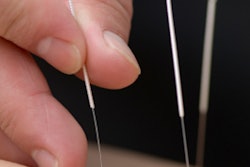
Liquid formulations of medications are often prescribed for patients who are receiving treatment for cancer. These patients may have problems swallowing capsules or tablets, which makes liquid formulations a superior, or even necessary, option.
 Jill Meyer-Lippert, RDH.
Jill Meyer-Lippert, RDH.However, oral liquid suspensions of antibiotics, antifungals, and analgesics may contain varying levels of sugar, mainly sucrose. This sugar is used to make medications more palatable, to act as a solvent, demulcent, and bulking agent.
This becomes an issue when bacteria in oral plaque biofilm consume sugar to produce an acid that damages tooth enamel. Frequent exposure through multiple dosages can create an acidic oral environment, resulting in dental caries.
These liquid medications may also contain acids that act as a buffering agent, control tonicity, and ensure physiological compatibility. Acids contribute to the breakdown of enamel in the form of caries and enamel erosion. This is especially concerning for those experiencing dry mouth, which many times is also a listed side effect of the same medications.
Risks to oral health
Oral disease is a source for pain, decreased quality of life, sepsis, and financial toxicity, a term coined recently to describe the unique financial distress and devastation experienced with a cancer diagnosis. Individuals with compromised immune systems are more likely to experience complications associated with oral disease.
“Individuals with compromised immune systems are more likely to experience complications associated with oral disease.”
All healthcare providers, not just dentists and hygienists, should be aware of the risks that medications may pose to oral health. When prescribing, healthcare professionals should provide proper patient education in the form of oral hygiene instruction, and coordination of care between medical and dental healthcare providers is necessary to prevent both short- and long-term oral disease and infection.
Preventive measures include rinsing with water immediately after use to remove sugary or acidic residue from teeth and also delayed toothbrushing for at least 30 minutes after exposure to allow the natural buffering agents of saliva to neutralize the acid attack.
Practical options
Over-the-counter and prescription products containing calcium, phosphate, and bicarbonate raise oral pH to a more acceptable level and aid in the remineralization process. Regular use of products that are 100% sweetened with xylitol reduces the number of cariogenic bacteria present in the mouth, prevents bacteria biofilm from sticking to teeth, stimulates saliva production, and stabilizes oral pH.
Prescription-strength fluorides, whether professionally applied 5% sodium fluoride varnish or at-home application through brushing or custom trays, have antimicrobial properties and strengthen enamel. When possible, consider alternative medications that pose fewer risks for damage to a patient's oral health.
Jill Meyer-Lippert, RDH, is the owner of Side Effect Support, which is dedicated to helping cancer survivors manage short-term oral side effects and long-term damage to oral health associated with chemotherapy, radiation to the head and neck, and some targeted therapies.
The comments and observations expressed herein do not necessarily reflect the opinions of DrBicuspid.com, nor should they be construed as an endorsement or admonishment of any particular idea, vendor, or organization.



















